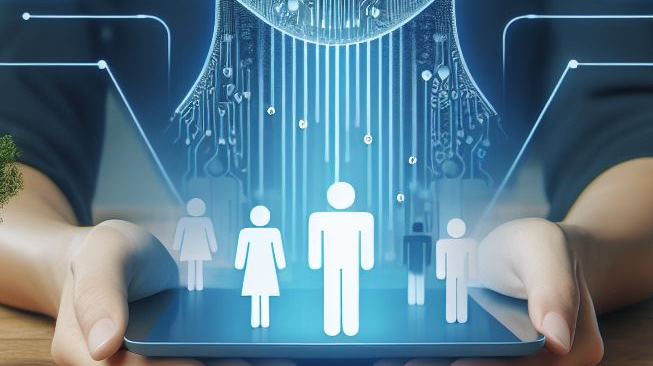WISLAH.COM – The advent of Artificial Intelligence (AI) has brought remarkable transformations across various fields, including healthcare, finance, and manufacturing. This article delves into the disadvantages of AI, providing a comprehensive understanding for anyone interested in the implications of AI technology.
Whether you are a student, a professional in the tech industry, or simply a curious reader, this piece aims to highlight the potential pitfalls of integrating AI into different sectors.
While AI offers significant advancements and efficiencies, it is crucial to scrutinize its drawbacks. This article explores these disadvantages in depth, shedding light on ethical concerns, legal challenges, and potential risks associated with AI.
By understanding these issues, stakeholders can better navigate the complexities of AI implementation and ensure responsible usage.
Artificial Intelligence Meaning?
Artificial Intelligence (AI) is a branch of computer science dedicated to creating systems capable of performing tasks that typically require human intelligence. These tasks include understanding natural language, making decisions, recognizing patterns, and learning from experience. The ultimate goal of AI is to develop machines that can operate independently, adapting and responding to new situations without human intervention.
AI encompasses a wide range of technologies and methodologies. Machine learning (ML), a subset of AI, involves training algorithms on large datasets to recognize patterns and make predictions. Neural networks, inspired by the human brain, are used to simulate complex processes and solve problems in areas such as image and speech recognition. Other AI techniques include natural language processing (NLP), which allows machines to understand and generate human language, and robotics, which combines AI with physical devices to perform tasks in the real world.
Disadvantages of Artificial Intelligence
1. Ethical Concerns
One of the primary disadvantages of AI is the ethical dilemmas it presents. As AI systems become more autonomous, questions arise about the moral implications of their decisions. For instance, in healthcare, AI-driven diagnostics and treatment recommendations might not account for the nuances of individual patient cases, leading to ethical conflicts. Moreover, the use of AI in surveillance and data collection raises significant privacy issues, as individuals’ personal information can be misused or inadequately protected.
2. Job Displacement
AI’s ability to automate tasks poses a significant threat to employment across various industries. As machines become capable of performing tasks traditionally done by humans, many jobs are at risk of becoming obsolete. This can lead to widespread unemployment and economic disparities. For example, in manufacturing, AI-powered robots can perform assembly line tasks more efficiently than human workers, reducing the need for manual labor.
3. Security Risks
AI systems are vulnerable to various security threats. Hackers can exploit weaknesses in AI algorithms to manipulate outcomes or gain unauthorized access to sensitive information. In healthcare, for example, AI systems that manage patient data and treatment plans are attractive targets for cyberattacks. Ensuring the security and integrity of AI systems is a significant challenge that requires continuous monitoring and updates.
4. Legal Challenges
The integration of AI into various sectors introduces numerous legal issues. In healthcare, the use of AI for patient diagnosis and treatment raises questions about liability and accountability. If an AI system makes an incorrect diagnosis, determining who is responsible for the error can be complex. Additionally, existing laws may not adequately address the unique challenges posed by AI, necessitating the development of new regulations and legal frameworks.
5. Algorithmic Bias
AI systems can inadvertently perpetuate and amplify biases present in the data they are trained on. This can lead to discriminatory practices in areas such as hiring, lending, and law enforcement. For example, an AI system used in recruitment might favor candidates from certain demographic groups if the training data reflects existing biases. Addressing algorithmic bias requires careful consideration of data sources and the implementation of measures to ensure fairness and equity.
6. Dependency on Technology
The increasing reliance on AI technology can lead to a loss of human skills and judgment. As AI systems take over more tasks, individuals may become overly dependent on technology, leading to a decline in critical thinking and problem-solving abilities. In healthcare, for instance, doctors who rely heavily on AI for diagnosis might lose the ability to make independent clinical judgments.
Artificial Intelligence offers numerous benefits, but it is essential to recognize and address its disadvantages. Ethical concerns, job displacement, security risks, legal challenges, algorithmic bias, and dependency on technology are significant issues that need careful consideration. By understanding these drawbacks, stakeholders can develop strategies to mitigate the risks and ensure that AI technology is used responsibly and ethically.
The insights provided in this article are valuable for anyone involved in the development, implementation, or regulation of AI technologies. As AI continues to evolve, ongoing dialogue and collaboration among technologists, policymakers, and the public are crucial to harness its potential while minimizing its negative impacts.








